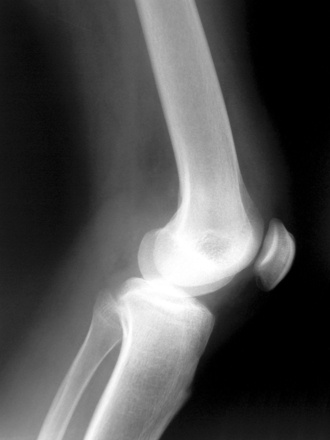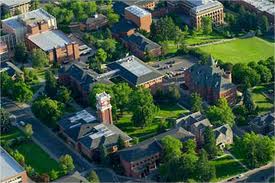 Researchers from Washington State University are getting a leg up from the National Institutes of Health to continue their work with artificial hip and knee replacements.
Researchers from Washington State University are getting a leg up from the National Institutes of Health to continue their work with artificial hip and knee replacements.
A five-year, $1.8 million grant was recently given to WSU from the NIH, and will support research to improve bone implants using primarily nanomaterials and 3D printing. This recently developed research promises to advance medical techniques available to the over 1 million people who undergo hip or knee replacement procedures annually.
The group or researchers includes clinicians, mathematicians and engineers, and is led by: Amit Bandyopadhyay, professor of the WSU Voiland College of Engineering and Architecture; Susmita Bose, professor in the Voiland College; Nairanjana Dasgupta, associate professor in the Department of Mathematics, and William Dernell, professor in the Department of Veterinary Clinical Sciences.
In conjunction with biomedical device company Zimmer Biomet, the researchers are working to improve the capabilities of artificial implants to successfully bond to human bone.
According to industry experts, the current coating used for 3D printed titanium knee and hip replacement parts is not optimally compatible with biological tissues. The WSU team hopes to address this factor with additives such as magnesium, zinc, calcium, antibiotics, and other medications to give the materials more bone-like qualities and to expedite healing.
 The new bonding process involves the growth of metal nanotubes on the surface of the implants that can strongly anchor the implant in place. The researchers liken the process to the growth of chia seed spores on a “Chia Pet”, a process that is likely to greatly improve both the capabilities, and the speed of manufacture of knee and hip implants.
The new bonding process involves the growth of metal nanotubes on the surface of the implants that can strongly anchor the implant in place. The researchers liken the process to the growth of chia seed spores on a “Chia Pet”, a process that is likely to greatly improve both the capabilities, and the speed of manufacture of knee and hip implants.
In addition to this important breakthrough in nanomaterials for the benefit of medical science, researchers at Washington State University are leading the way in many fields of science and engineering.
For example:
- A WSU professor received a $327,000 grant for development of revolutionary chemistry measurement instruments
- $52.9 million funding is being awarded through the 2013-15 Capital Budget Proposed Substitute House Bill 1089 for the Clean Technology Laboratory at Washington State University.
- Northwest Advanced Renewable Alliance, led by Washington State University, received a $40 million grant from the U.S. Department of Agriculture for the development of aviation biofuels and petrochemical substitutes.
 Every year, researchers from Washington State University and surrounding areas head to one place in search of the latest in lab equipment and lab supplies for their important projects.
Every year, researchers from Washington State University and surrounding areas head to one place in search of the latest in lab equipment and lab supplies for their important projects.
If you are a lab supply vendor, your best opportunity of 2015 to meet with active WSU researchers in 2015 is at the:
16th Annual BioResearch Product Faire™ at Washington State University on October 14, 2015. This popular annual life science event puts hundreds of WSU’s most active and well-funded researchers face-to-face with the industry’s top suppliers. Take this opportunity to make sure your lab supply company is represented in one of the West Coast’s leading life science markets.
To participate in this leading life science trade show event, click the appropriate link below:



